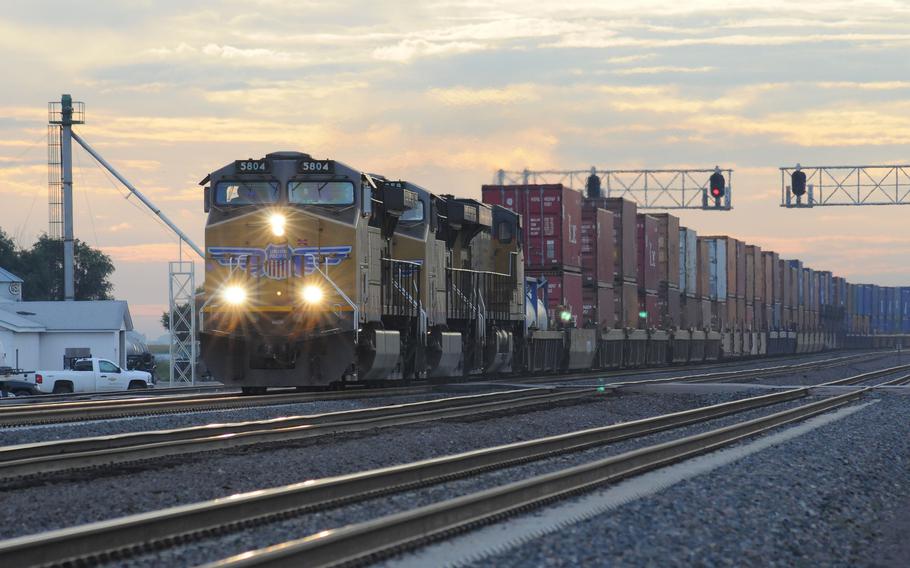
A Union Pacific train drives through Nebraska on Aug. 9, 2010. A train hauling coal derailed Tuesday in Nebraska, marking at least the fourth time in less than a month that a freight train has gone off its rails nationwide. (Wikimedia Commons)
A train hauling coal derailed Tuesday in Nebraska, marking at least the fourth time in less than a month that a freight train has gone off its rails nationwide.
The Union Pacific train derailed two weeks after a Norfolk Southern derailment in Ohio that spilled a flammable gas near East Palestine, setting off a public health scare and fueling calls for stricter regulation and higher fines for railroad safety breaches.
In the latest incident, about 31 cars carrying coal derailed about 1:45 a.m. local time near Gothenburg, Neb., Union Pacific said in a statement. The Omaha-based railroad said there were no injuries and no hazardous materials were involved.
Images from Nebraska on Tuesday showed toppled train cars and piles of coal near the tracks as crews worked to clear the debris. Union Pacific said one of three mainline tracks near the derailment site reopened about 8 a.m. Tuesday.
The incident came on the same day Transportation Secretary Pete Buttigieg called on the rail industry to take steps to improve safety, including adopting new tank cars and providing workers with paid sick leave.
In the Feb. 3 incident, a train carrying vinyl chloride and other hazardous materials derailed, prompting an evacuation near the Pennsylvania border. The incident followed a Jan. 27 Union Pacific derailment in northern Louisiana, where the leak of 10,000 gallons of “acid-related products” prompted an evacuation within a half-mile radius. A Norfolk Southern train hauling hazardous materials derailed Thursday near Detroit, but none spilled, officials said.
The recent high-profile spills and derailments have spurred questions about the safety of transporting toxic chemicals over long distances and through American towns, although federal data shows chemical leaks while in transit are declining.
The number of hazmat incidents resulting from crashes or derailments across all modes of transportation fell to 80 last year, down from more than 360 a decade ago, according to data from the Department of Transportation’s Pipeline and Hazardous Materials Safety Administration, which sets regulations and tracks hazmat incidents in transportation.
Buttigieg on Tuesday called on the industry to take “immediate, common-sense steps” to improve safety. The proposed changes were a response to criticism over the Biden administration’s handling of the Ohio derailment.
The Transportation Department is set to begin a round of track inspections on routes used by trains carrying hazardous materials and to study the possibility of issuing rules requiring railroads to adopt new braking technology on some trains. Buttigieg also called on Congress to raise the $225,455 maximum on fines for violations of railroad safety rules.